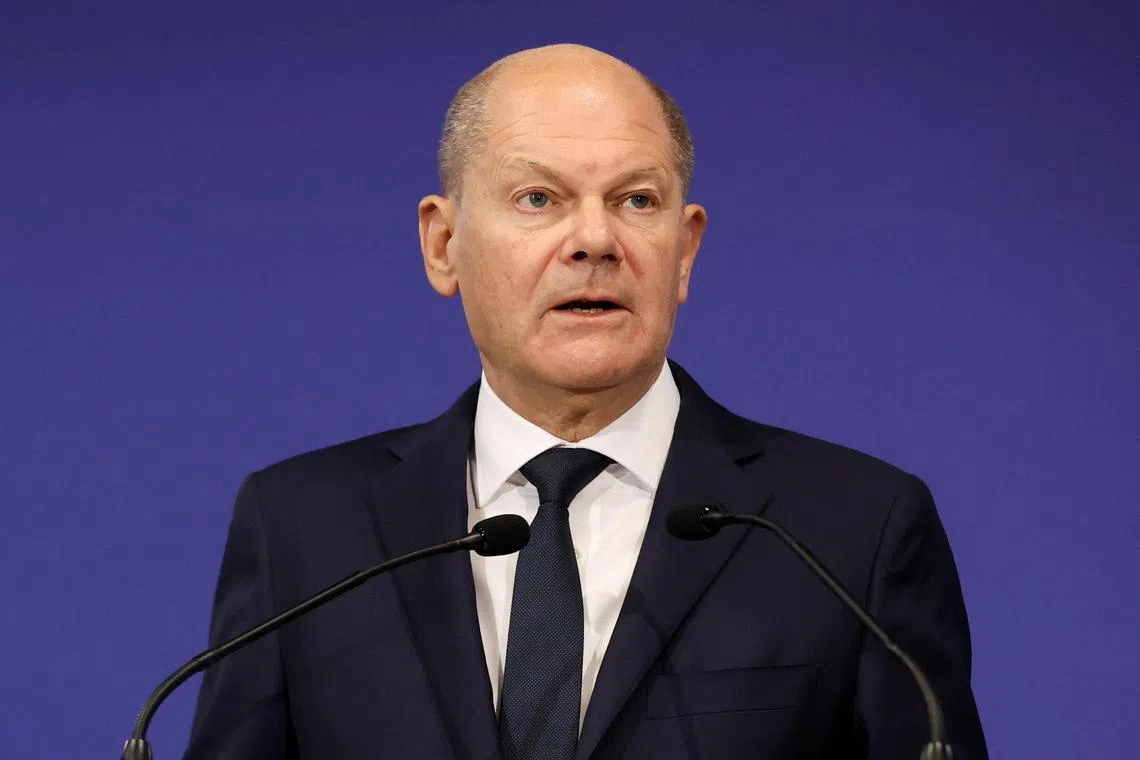Trump, Scholz agree to work towards ‘return to peace in Europe’
Sign up now: Get ST's newsletters delivered to your inbox

German Chancellor Olaf Scholz congratulated Donald Trump a second time on his election victory.
PHOTO: REUTERS
Follow topic:
BERLIN – US President-elect Donald Trump on Nov 10 spoke with German Chancellor Olaf Scholz by phone, adding that they “agreed to work together towards a return to peace in Europe”.
Mr Scholz – mired in a political crisis and facing a snap election sometime in early 2025 – congratulated Trump a second time on his election victory, according to the chancellor’s spokesman Steffen Hebestreit.
“Both exchanged views on the German-American relationship and the current geopolitical challenges,” Mr Hebestreit said in a brief statement.
“The chancellor underlined the government’s willingness to continue the decades-long successful cooperation between the governments of both countries. They also agreed to work together towards a return to peace in Europe.”
Trump’s election is seen as carrying the potential to upend the almost three-year Ukraine conflict, as he insists on a quick end to the fighting and casts doubt on Washington’s multi-billion-dollar support for Kyiv.
During his campaign, Trump repeatedly vowed to quickly end the Ukraine war – even before he is sworn into office – but without detailing his thinking.
Trump has spoken to Russian President Vladimir Putin and urged him not to escalate the war in Ukraine, the Washington Post reported earlier on Nov 10. Trump’s representatives did not immediately respond when asked by AFP for comment.
During his last term in the White House, Trump berated Nato ally Germany for what he deemed insufficient defence spending, as well as trade and other issues.
Mr Scholz had already congratulated Trump on Nov 6 and urged continued close transatlantic ties, telling him in English: “We’re better off together.”
The centre-left leader of Europe’s biggest economy, who plans to run again in the upcoming elections, added: “Together we can achieve much more than against each other.” AFP

